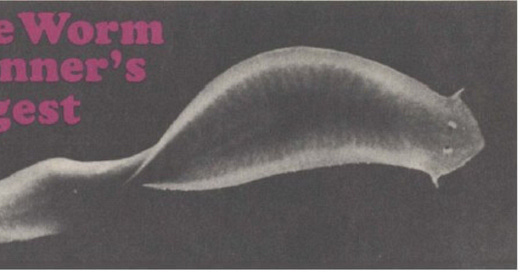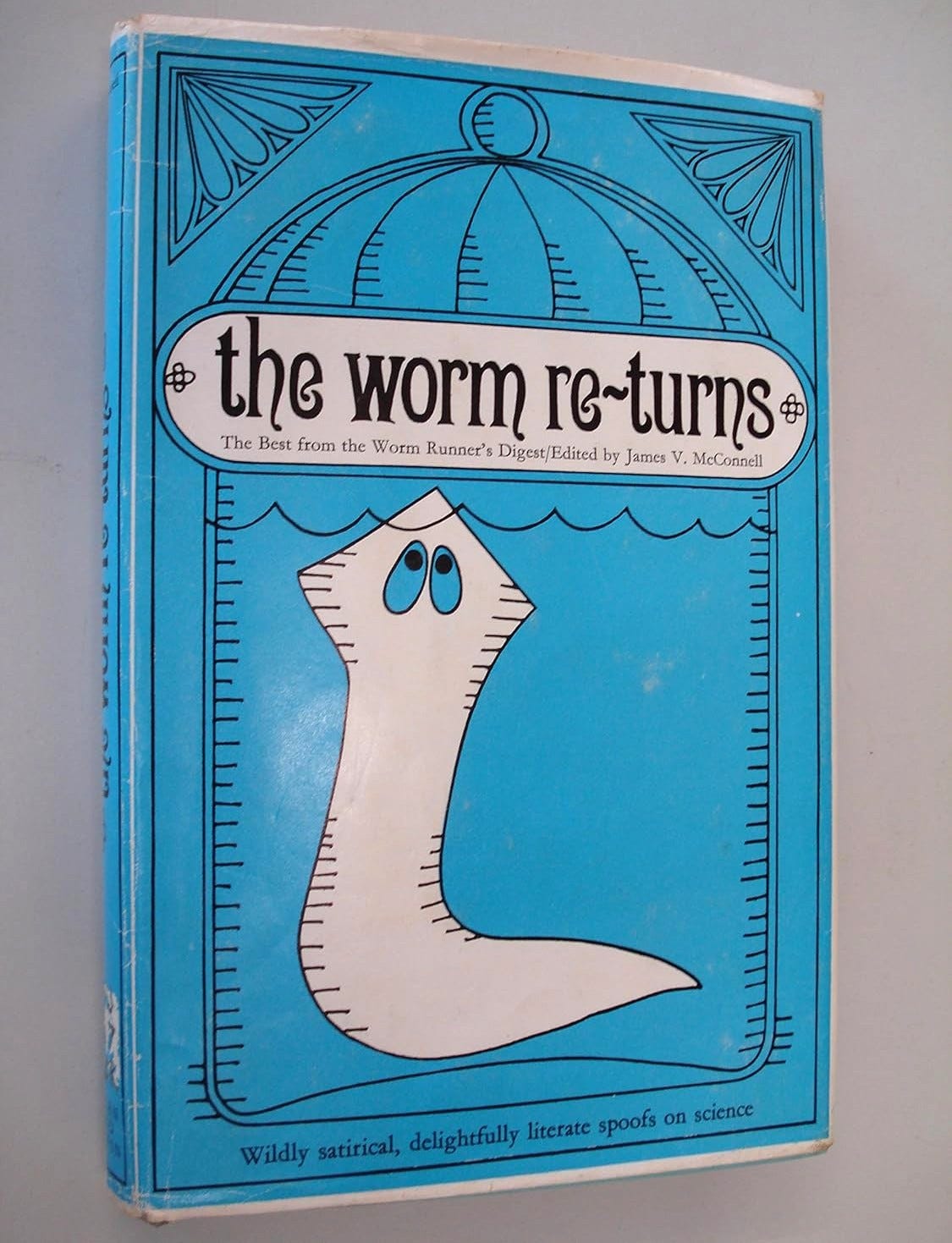The Worm Runner’s Digest was a one-of-a-kind academic journal that combined serious scientific research with satire. It was launched in 1959 by the University of Michigan behavioral psychology professor James V. McConnell.
McConnell had already made headlines for his experiments with flatworms known as planarians. He claimed that trained worms, when ground up and fed to untrained ones, seemed to pass on what they had learned. While other scientists had trouble repeating the results and the idea eventually lost credibility, it raised fascinating questions about whether memory could be transferred chemically, perhaps through RNA.
What made The Worm Runner’s Digest unusual was that it published serious peer-reviewed scientific articles and clever parodies in the same issues. Some humorous titles mocked academic culture, such as “A Stress Analysis of a Strapless Evening Gown.” Even the name of the journal was a joke. It was a nod to “rat runners,” a nickname for scientists who ran experiments on lab rats.
The humor attracted big names in psychology. B.F. Skinner, the renowned Harvard professor known for his work on behaviorism, contributed two satirical essays under the pen name “F. Galton Pennywhistle.” Harry Harlow, a pioneering professor at the University of Wisconsin, submitted a fake guide on how to write psychology articles.
Freudian theory wasn’t safe from mockery either. One piece, written by “Sigmund Fraud,” introduced a made-up nasal stage in psychosexual development, between the anal and phallic stages, where a person’s issues might include looking down on others or nosing into their affairs.
One fake study claimed lab productivity could be calculated using a formula involving how fast secretaries typed. It concluded that a lab with all secretaries and no scientists would be the most scientifically productive.
Some readers couldn’t tell the difference between the real and fake articles, leading McConnell to print the humorous pieces upside down in the second half of the journal.
The Worm Runner’s Digest gained a devoted audience. In 1966, McConnell changed its name to The Journal of Biological Psychology to boost its credibility in the academic world, but the journal kept its trademark humor. He also collected and republished some of the best content in the books The Worm Re-Turns and Science, Sex, and Sacred Cows, helping introduce its wit to a wider audience.








See also "the Journal of Irreproducible Results", a wonderful stretch for the mind and imagination.
Gary Anderson